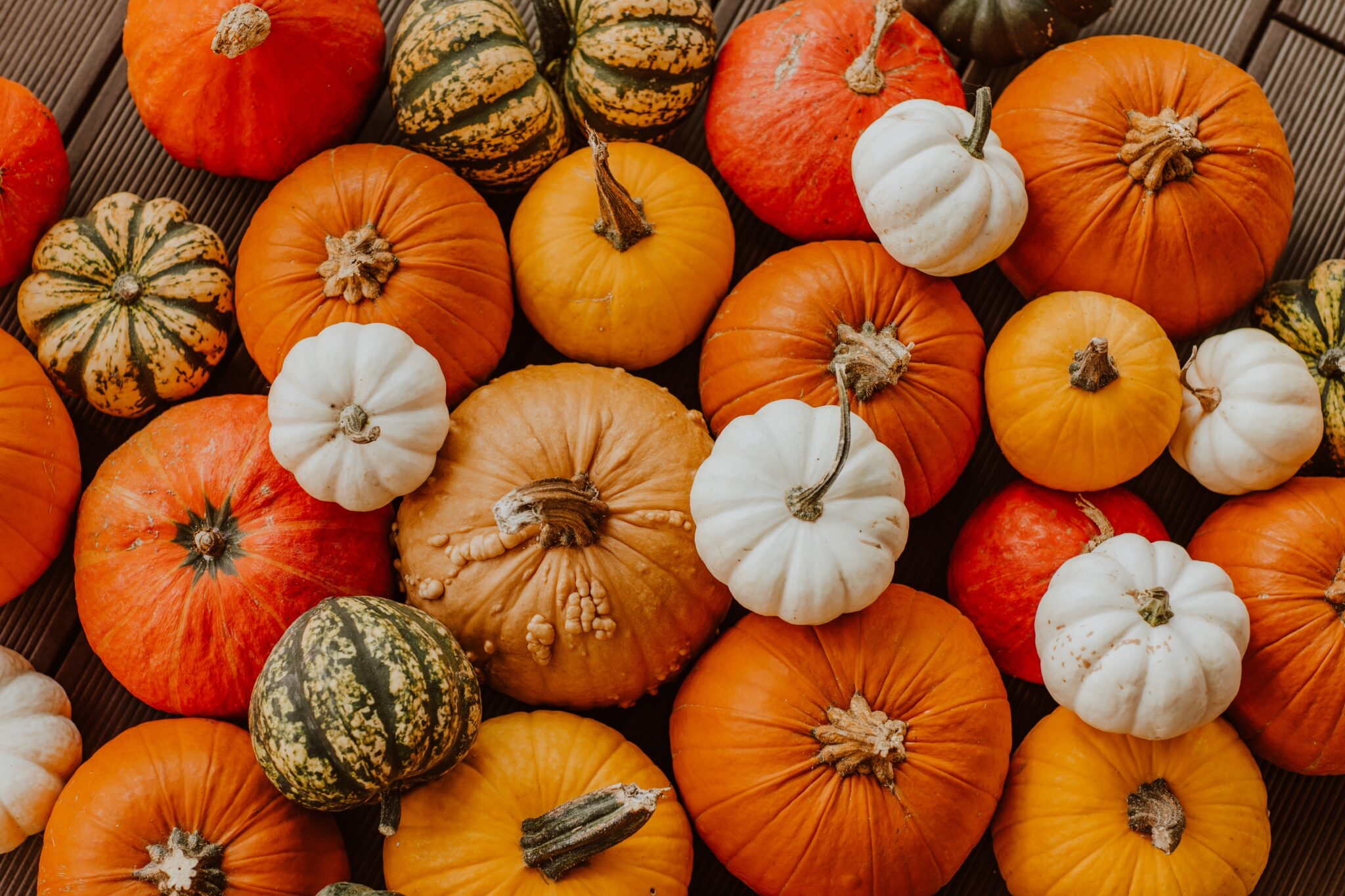
Produce Spotlight: Pumpkins
Pumpkin is not just for pie! This common fall decor doubles as a winter squash full of fiber and vitamin A. This helps aid digestion and has benefits for your eyes and skin! Beyond health benefits, pumpkin is sweet and full of flavor that works in both savory and sweet dishes.
Pumpkin Varieties
While many Oklahoma Farmers Markets have come to an end, you can still find a handful of year-round markets, produce stands, and farms selling pumpkins for the fall season. Here are the best ways to use different types of pumpkins.
Casper Pumpkins
These white pumpkins are popular for decor and boast a sweet orange flesh.
Best for: dessert baking, pies
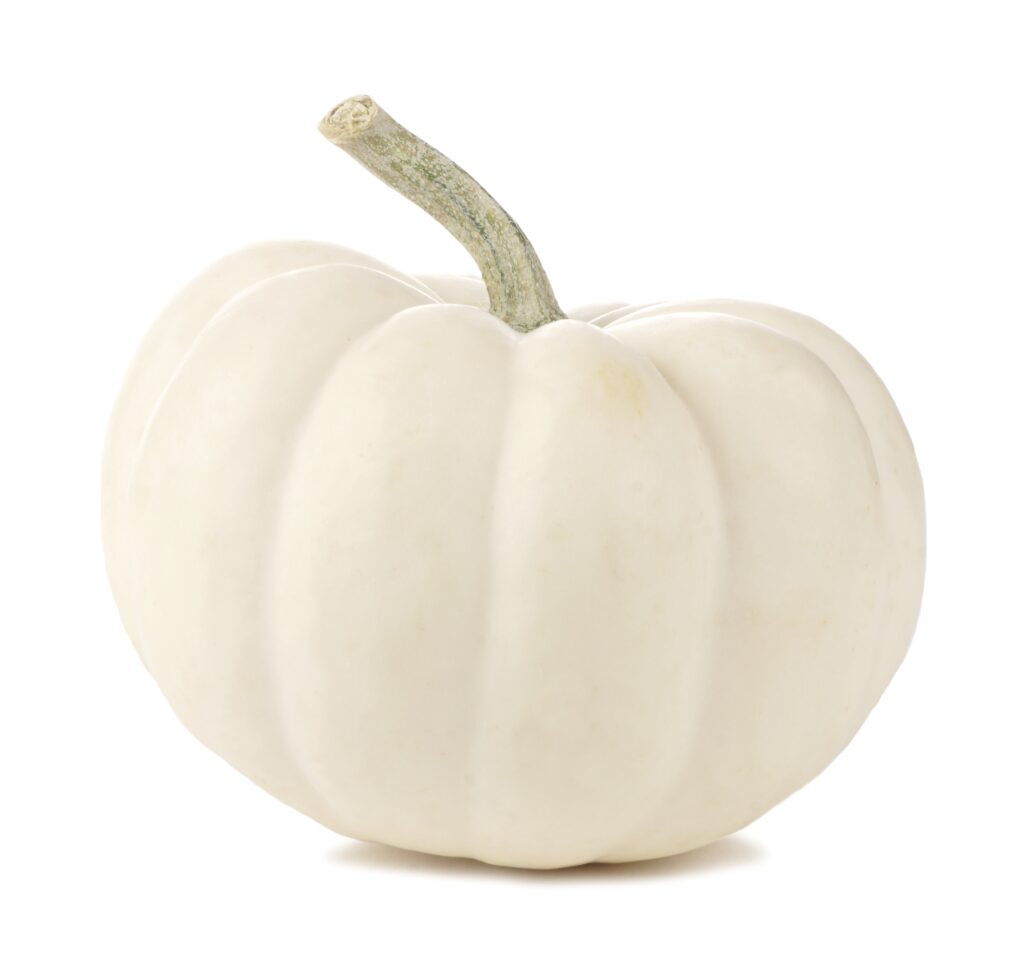
Peanut Pumpkins
These pumpkins are faded orange in color and have peanut-shaped growths on their skin. Don’t let the warty appearance scare you away, these pumpkins are perfectly edible and delicious!
Best for: Sauteing, roasting, grilling
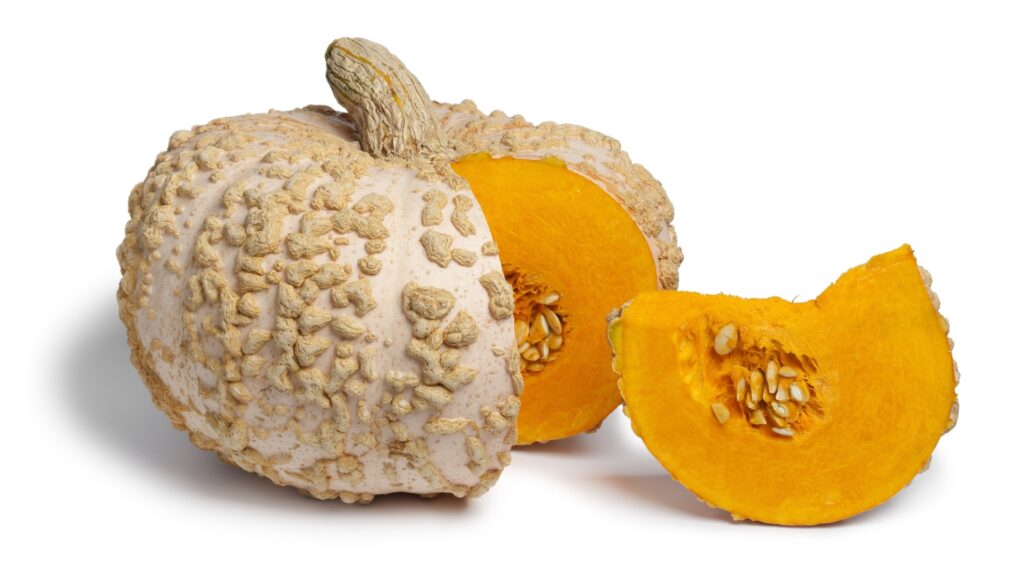
Cinderella Pumpkins
These bright orange pumpkins are known for their classic round shape with deep ribs all around. They have a milder flavor compared to other varieties, making them perfect to use in savory dishes!
Best for: Sauces, soups, purees, curries
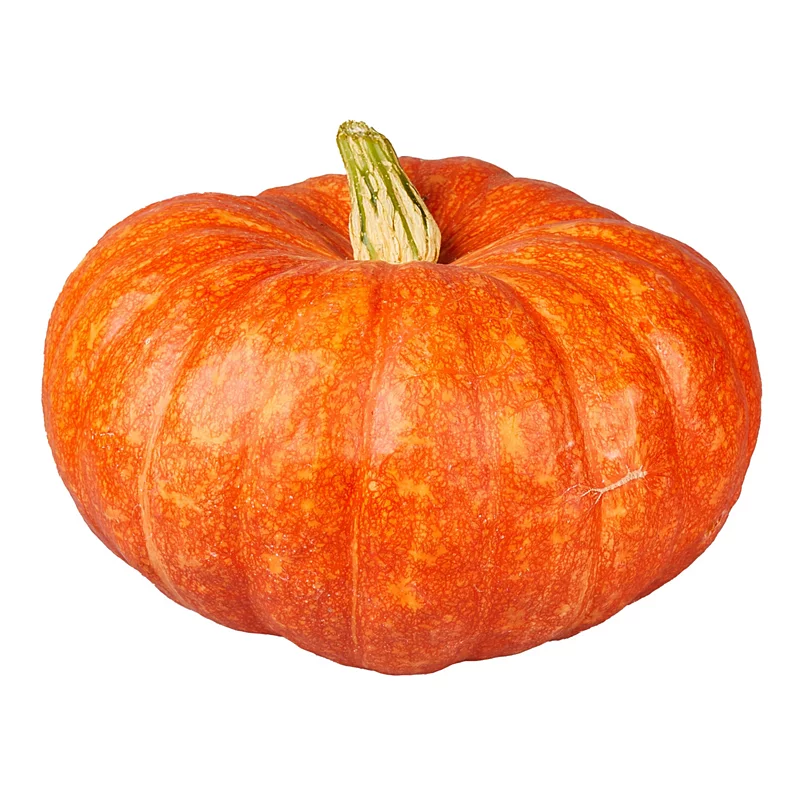
Fairytale Pumpkins
All have their uses in cooking. Carving pumpkins are great in dishes with strong flavors like curries or casseroles. Pie pumpkins are obviously good for desserts, but also provide a brightness to savory dishes. Mini pumpkins can be stuffed or roasted with sugar, butter, and cinnamon for an individual treat. There is a wide world of pumpkin out there! These 5 are delicious and worth a try:
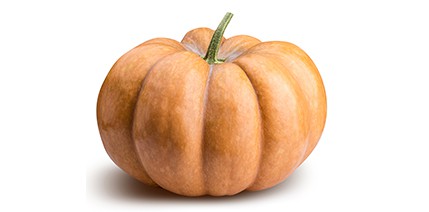
Sugar Pie Pumpkins
These small, round pumpkins have firm, stringless flesh and great flavor that makes it great for almost any use!
Best for: pies, baking
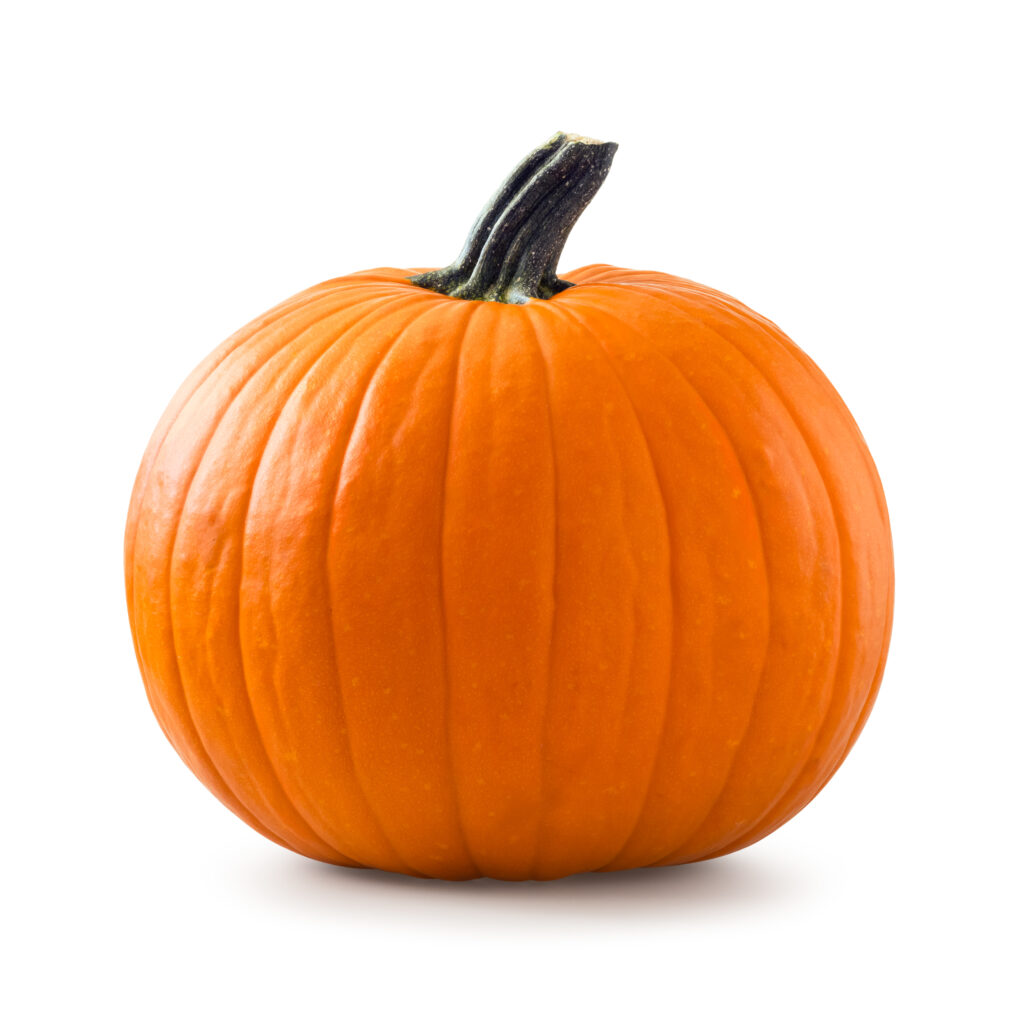
Jarrahdale
These pumpkins have a unique blue-green skin with a dense, stringless flesh that makes for silky pies and melt-in-your mouth stews.
Best for: pies, soups
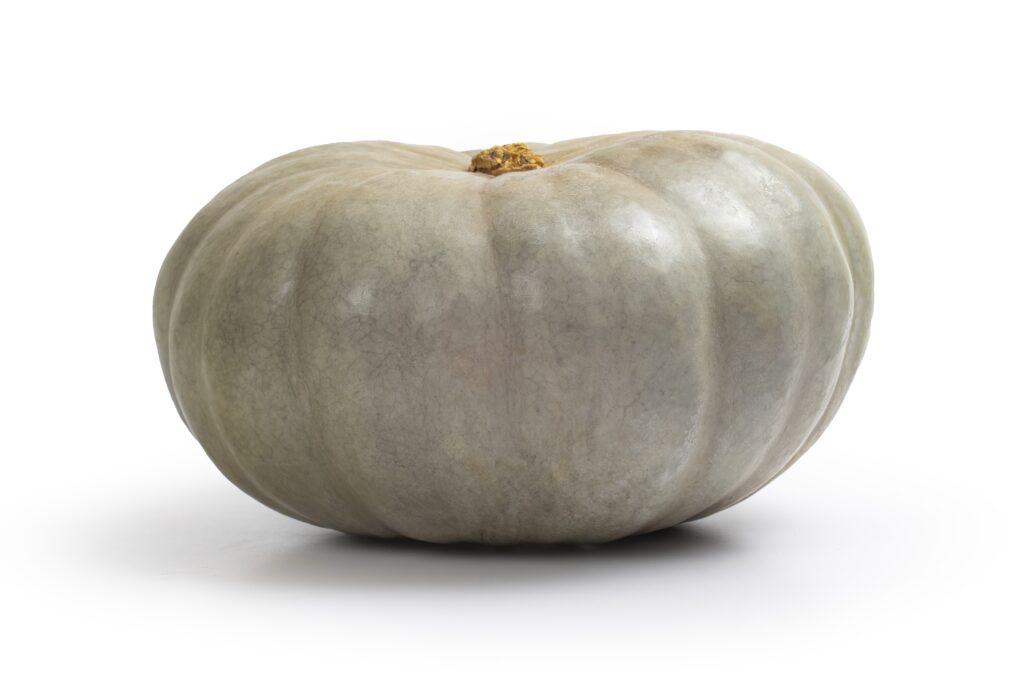
How to Choose & Store
Look for a pumpkin with a firm outer skin with no soft spots or cracks. A pumpkin should feel heavy for its size. Store in a cool dry place such as a countertop (away from the stove or oven) or pantry. A pumpkin stored correctly can last 1-3 months.
How to Prepare
Nearly all pumpkins are great when baked & purees! Pumpkin puree is great for substituting butter in baking recipes, cutting down on the fat in desserts. Try this method with a standard 3-4 pound sugar pie pumpkin:
Step 1
Preheat oven to 400F. Using a large knife, cut a circle around the stem & remove.
Step 2
Cut pumpkin in half & use a spoon to scoop out the seeds.
Step 3
Cover the bottom of a large baking sheet with a ½ inch of water. Place face down on a baking sheet. Bake 30-45 minutes or until the shell is hard & pumpkin is fork-tender.
Step 4
Spoon out the cooked pumpkin into a bowl & smash with a fork. Now use in your favorite pumpkin recipe.
Pumpkin Nutrition
Vitamin A: Supports healthy eyes & skin
Vitamin C: Supports a strong immune system
Vitamin K: Helps with blood clotting (stops a bleed when you are cut)
Fiber: Aids digestion
Pumpkin Recipes
Now that you know all there is to pumpkins, time to put some to use! ONIE can get you started with these 3 recipes. Homemade pumpkin puree will have more flavor, but canned is a great & convenient option to use as well!
Pumpkin Pie Pancakes bring fabulous fall flavor to a loved breakfast staple.
Pumpkin Banana Bread Muffins are great to round out a breakfast & a quick snack.
Last but not least, dive right into this Pumpkin Mac & Cheese to see what pumpkin can do for a classic savory dish.


